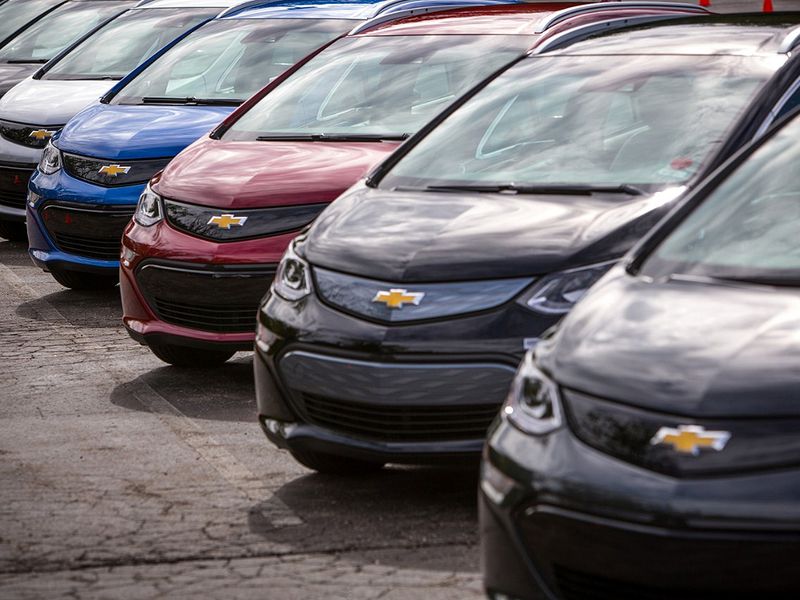
DETROIT — Nearly six months after NHTSA launched an investigation into select Chevrolet Bolts for catching fire, General Motors has developed a solution, the automaker said Thursday.
On Nov. 13, about a month after NHTSA announced the investigation, GM recalled 68,667 Bolts from the 2017 to 2019 model years. Of the recalled Bolts, 50,925 were sold in the U.S.
Since then, dealers have been unable to sell the affected vehicles to customers, trade the Bolts with other dealers or send the vehicles to auctions.
GM believes the cause of five known fires is related to a rare manufacturing defect in the production of the battery cells by LG Chem in South Korea, said spokesman Dan Flores. The defect could result in a heat source or a short in a cell, which could cause a fire, he said.
Dealers will use a GM-developed diagnostic tool to identify potential battery anomalies and replace battery module assemblies as necessary, GM said in a statement. Dealers will also install advanced on-board diagnostic software that can detect potential issues related to changes in battery module performance before problems occur, GM said.
The remedy will be available for owners of 2019 Bolts starting Thursday. Owners of 2017 and 2018 Bolts will be eligible for the repair by the end of May, GM said.
The automaker will also make the advanced diagnostic software available to all other Bolt owners in the coming months. The software will be standard in the 2022 Bolt EV and EUV, along with future GM electric vehicles.
In November, GM said it had identified five Bolt fires, possibly related to high-voltage batteries produced by LG Chem in South Korea. In each of the five confirmed cases, the batteries were at or near their maximum charge.
Bolts built for the 2017 and 2018 model years used the LG Chem batteries made in South Korea. For the 2019 model year, some Bolts were built with the Korean batteries, while others used LG Chem batteries made in Holland, Mich. GM said Bolts built with the Michigan batteries were not affected.
GM said 2020 Bolts are not affected because they were built with a different battery chemistry that increased range. All Bolts are powered by GM’s previous-generation battery architecture, not the proprietary Ultium battery that will power its future EV lineup, which includes the GMC Hummer pickup and SUV, Cadillac Lyriq and Chevrolet Silverado EV.
In November, as a temporary solution, GM told customers who have a 2017 or 2018 Bolt to drive using Hilltop Reserve mode until a software update is available. It suggested that owners of 2019 models set their battery charge to a maximum of 90 percent.
Once dealers add the diagnostic software, they will remove the 90 percent charge limitation and return the battery to its full charging capability, GM said.
GM repurchased Bolts from some customers during the recall period, but the automaker would not disclose the number of owners approved for a repurchase.
“For customers that have demanded a repurchase, we address those on a case-by-case basis,” said Flores.

